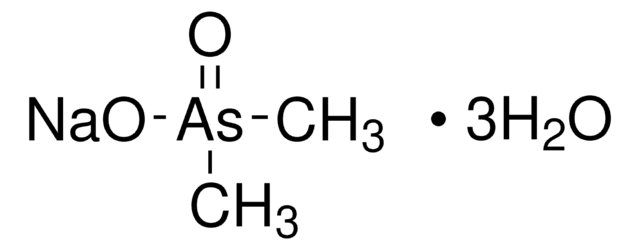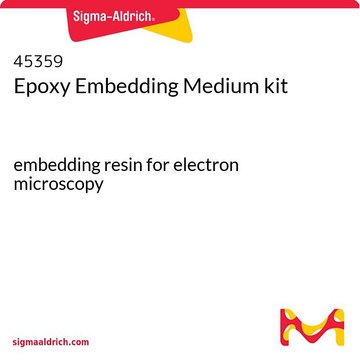201030
Osmium tetroxide
ReagentPlus®, 99.8%
Synonym(s):
Osmium(VIII)-oxide, ‘Osmic acid’
About This Item
powder
Recommended Products
vapor density
8.8 (vs air)
Quality Level
vapor pressure
7 mmHg ( 20 °C)
product line
ReagentPlus®
Assay
99.8%
form
crystalline
powder
reaction suitability
reagent type: oxidant
bp
130 °C (lit.)
mp
39.5-41 °C (lit.)
storage temp.
2-8°C
SMILES string
O=[Os](=O)(=O)=O
InChI
1S/4O.Os
InChI key
VUVGYHUDAICLFK-UHFFFAOYSA-N
Looking for similar products? Visit Product Comparison Guide
General description
Application
- To promote the lactonization of alkenols to lactones.
- To mediate the selective oxidative cleavage of olefins by oxone to form the corresponding ketones or carboxylic acids.
- Dihydroxylation of mono-trans-di, and trisubstituted olefins to form 1,2-diols with high enantioselectivity in the presence of chiral amines.
Legal Information
Signal Word
Danger
Hazard Statements
Precautionary Statements
Hazard Classifications
Acute Tox. 1 Dermal - Acute Tox. 2 Inhalation - Acute Tox. 2 Oral - Eye Dam. 1 - Skin Corr. 1B
Storage Class Code
6.1A - Combustible acute toxic Cat. 1 and 2 / very toxic hazardous materials
WGK
WGK 1
Flash Point(F)
Not applicable
Flash Point(C)
Not applicable
Choose from one of the most recent versions:
Already Own This Product?
Find documentation for the products that you have recently purchased in the Document Library.
Customers Also Viewed
Our team of scientists has experience in all areas of research including Life Science, Material Science, Chemical Synthesis, Chromatography, Analytical and many others.
Contact Technical Service






